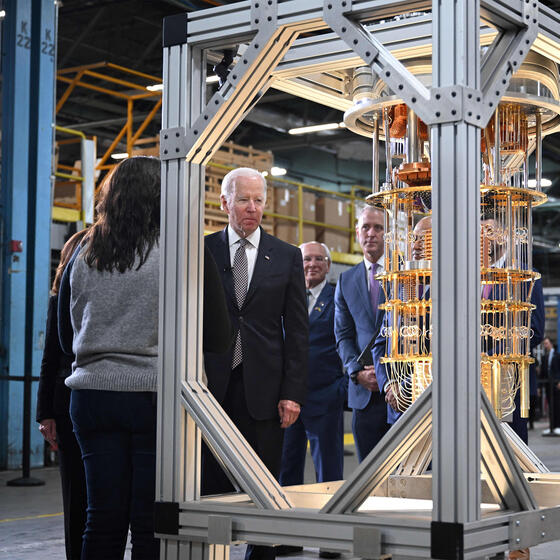Public Policy
Can Industrial Policy Help Revive Struggling Regions?
A new paper co-authored by Yale SOM’s Cameron LaPoint looks at an effort in 1980s Japan to narrow economic inequalities between geographic regions, in order to understand the potential impact of the similar U.S. CHIPS and Science Act, enacted in 2022.

Why Do We Need Experts?
Today’s political and cultural debates reflect a lack of consensus not just on policy but on the facts themselves—and on who is qualified to judge the truth. Robert C. Post, the dean of Yale Law School, argues for an approach to free speech that preserves the role of expertise.
Robert Shiller: Owning a Home Isn’t Always a Virtue
In the New York Times, Professor Robert Shiller writes that the United States should reduce government subsidies for homeownership, while finding another way to promote household saving.
Is antitrust law keeping up?
Can laws created to rein in the monopolies of the industrial age still work in the information age? After spending a year as the top antitrust economist at the U.S. Department of Justice, Professor Fiona Scott Morton describes the state of antitrust regulation today.
Want to Fix Social Security? Use the Right Wrench
In a New York Times op-ed, Professor Robert Shiller writes that President Obama’s proposal to change how inflation is measured in Social Security benefit calculations “…solves the wrong problem, and, in doing so, undermines the integrity of the Social Security system.” One alternative, suggests Shiller, is to link retirees’ benefits to GDP per capita, in current dollars, which would align the interests of the retired with those of society as a whole.
Yes, We’re Confident, but Who Knows Why
As housing, unemployment, the stock market, and the overall economy show signs of recovery, Professor Robert Shiller writes in the New York Times that we understand little about how people’s confidence affect these major turning points. "…[P]ublic thinking is inscrutable. We can keep trying to understand it, but we’ll be puzzled again the next time the markets or the economy make major moves."
The Language We Speak Predicts Saving and Health Behavior
Languages differ in how much they distinguish between the present and the future. Professor Keith Chen found that speakers of languages that do not rely on the future tense make more future-oriented choices, including saving more money, retiring with more wealth, and smoking less.
Medical School Gift Restriction Policies Affect Doctors' Prescribing Behavior
Professor Marissa King compared the prescribing patterns of doctors who graduated before and after their medical schools introduced conflict-of-interest policies that restrict industry gifts. Her research showed that doctors who experienced gift restrictions during medical training are less likely to prescribe newly marketed medications.
What is environmental security?
A country runs out of drinkable water. What's its next move? And how will its actions affect neighboring countries? The national security community has developed data, expertise, and plans for responding to threats caused by environmental problems.
What has happened to the labor market in the Great Recession?
With 14 million people out of work in the U.S., labor markets are receiving a lot of attention. Yale SOM's Lisa Kahn did groundbreaking work on the impact of graduating into a bad economy. She offers her take on what's happening now and what to expect.
Are our institutions up to the job?
The massive problems associated with sustainability, from climate change to resource preservation, require coordinated, society-wide responses. Nobel laureate Elinor Ostrom argues for the importance of giving local institutions enough power to better manage common resources—though it’s not easy.